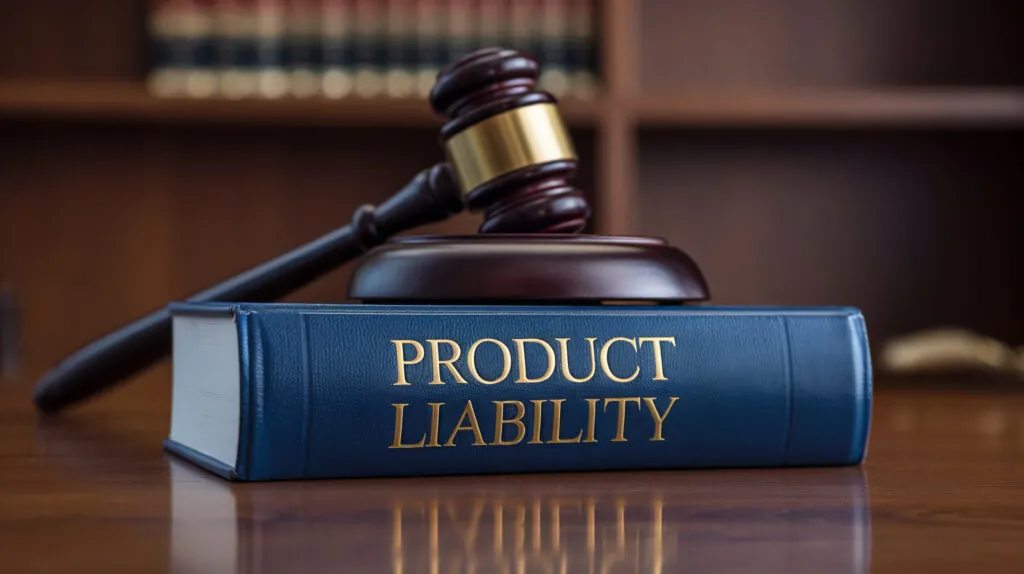When you purchase a product in Pennsylvania and it causes injury, one key legal question arises: Who can be held responsible — the store that sold it to you or the company that made it? Or are both parties potentially liable?
Under Pennsylvania law, strict liability may apply, which allows injured consumers to bring claims against multiple parties involved in selling or distributing a defective product. This article explains what the law says, who you can sue, and how to approach these cases strategically.
Understanding Product Liability in Pennsylvania
What Is Product Liability?
Product liability refers to the legal responsibility of manufacturers, distributors, and sellers for injuries caused by defective or dangerous products. In Pennsylvania, product liability claims are generally brought under the theory of strict liability.
This means a manufacturer or seller can be held responsible even if they didn’t act negligently. All the injured person has to prove is that the product was defective and caused injury during normal use.
Why Pennsylvania Follows Strict Liability
Pennsylvania follows this approach to protect consumers from harm. Businesses that profit from selling products are expected to ensure those products are safe. If a product is unreasonably dangerous due to a design flaw, manufacturing defect, or lack of warning, then the companies involved may be strictly liable — regardless of intent or care.
Section 402A: The Legal Backbone of Product Cases
What Is Section 402A?
Section 402A of the Restatement (Second) of Torts is the central legal principle applied in Pennsylvania product liability cases. It holds that a seller of a product in a defective condition unreasonably dangerous to the consumer is liable if the product:
- Was defective when it left the seller’s hands
- Reached the consumer without substantial change
- Caused harm when used as intended
Who Can Be Sued Under Section 402A?
This rule applies to everyone in the chain of distribution — not just manufacturers. That includes:
- Retailers
- Wholesalers
- Distributors
- Online platforms (in some cases)
So yes, the store that sold you the item can be held liable, even if they didn’t know it was defective.
Suing the Manufacturer vs. the Retailer
When to Sue the Manufacturer
Manufacturers are generally considered the primary defendants in defective product claims because they are responsible for designing, producing, and testing the item.
Common claims against manufacturers include:
- Design defects – when the product is inherently dangerous
- Manufacturing defects – when something goes wrong during production
- Failure to warn – when warnings or usage instructions are inadequate or missing
Manufacturers are expected to anticipate risks and ensure the safety of their products.
When to Sue the Retailer
Retailers may not make the product, but they put it into the hands of the consumer. That makes them part of the chain of distribution and potentially liable under strict liability laws.
Even if a retailer had no knowledge of a defect and did everything by the book, Pennsylvania law allows injured parties to sue them. This includes big-box stores, independent retailers, and even online sellers under certain conditions.
Why You Should Consider Suing Both
In most product liability cases, it’s smart to sue both the manufacturer and the retailer. Doing so improves your legal options:
- If one party is insolvent or can’t be located, you may still recover from the other.
- Multiple defendants can increase pressure to settle.
- You preserve the right to let a jury or judge decide who’s more responsible.
Retailers and manufacturers may also have indemnification agreements, where one agrees to cover the other’s liability. Suing both gives your attorney room to navigate those issues.
Key Legal Concepts That Impact Your Case
The Chain of Distribution
The chain of distribution includes every business entity that handled the product before it reached you. This may include:
- The manufacturer that made the item
- A wholesaler that stored or transported it
- A retailer that sold it to you
All these parties can be named in a lawsuit. This helps ensure someone can be held accountable if the product caused harm.
Comparative Fault in Pennsylvania
Pennsylvania law follows a modified comparative fault rule. If your own actions contributed to the injury — such as misusing the product — your compensation may be reduced.
If a court finds that you are more than 50% responsible for the injury, you could be barred from recovery entirely. This is why legal representation is so important in close cases.
Statute of Limitations
Pennsylvania law gives you two years from the date of injury to file a lawsuit. This may seem like a long time, but evidence can disappear quickly.
If you wait too long, your case may be dismissed even if you have a valid claim. Consulting with a lawyer early helps preserve key documentation, witness accounts, and physical evidence.
Common Scenarios and Who’s Liable
Design vs. Manufacturing Defects
A design defect is a flaw in the blueprint or concept of the product, making it unsafe from the start. For example, a space heater that tips over too easily.
A manufacturing defect is a problem that happens during production, such as a missing bolt in a child’s stroller. Only some units may be affected.
In both cases, the manufacturer is likely liable — and so is the retailer that sold the item.
Retailers Selling Recalled or Expired Products
Retailers have a duty to remove recalled products from their shelves. If they fail to do so and a customer is injured, the store may be liable.
This also applies to expired goods, such as food or medicine, that should no longer be sold. Ignoring recalls or expiration dates can constitute negligence.
No Recall, but Still Dangerous
A product does not need to be recalled for you to sue over it. If you can prove the product was defective and caused injury, a recall isn’t required.
Your attorney can use expert testimony and product analysis to demonstrate the defect.
How to Build a Strong Case
What You Need to Prove
To win a product liability claim in Pennsylvania, you must show:
- The product was defective
- The defect existed when it left the defendant’s control
- The product was used in a foreseeable manner
- The defect directly caused your injury
This is easier to prove under strict liability than negligence — but evidence still matters.
Gathering Evidence
Helpful materials include:
- Photos or videos of the defective product
- Proof of purchase (receipt, email confirmation)
- Medical records
- Incident reports
- Expert analysis
- Prior complaints or similar incidents
You do not have to build the case alone. An attorney will help collect and present the necessary documentation.
Settlement vs. Trial
Most product liability cases settle before trial. A settlement can offer quicker compensation and reduce stress.
However, in high-stakes cases or when liability is disputed, a trial may be necessary. Juries can award larger verdicts, especially in cases of serious injury or corporate negligence.
Frequently Asked Questions
Can I sue both the retailer and the manufacturer for a defective product in Pennsylvania?
Yes, Pennsylvania law allows you to sue both the retailer and the manufacturer under the doctrine of strict liability. Even if the store had no role in designing or manufacturing the defective product, it can still be held legally responsible simply for having sold it. This dual liability approach ensures that injured consumers have a better chance of recovering compensation, especially if one party is insolvent or difficult to locate.
What is the difference between strict liability and negligence in product cases?
Strict liability means that a defendant can be held responsible for a defective product without the need to prove negligence or intent. You only need to show that the product was defective, that it was used as intended, and that it caused injury. In contrast, a negligence claim requires proof that the defendant failed to exercise reasonable care, which led to the injury. Pennsylvania product liability claims are most often pursued under strict liability, making it easier for injured consumers to bring a case.
How long do I have to file a product liability lawsuit in Pennsylvania?
The statute of limitations for product liability cases in Pennsylvania is generally two years from the date of injury. This means you have two years to initiate legal action. If you fail to file within this time frame, your case will likely be dismissed regardless of how strong the facts may be. It is important to speak with a lawyer as soon as possible after the injury to avoid missing critical deadlines.
What happens if I used the product incorrectly?
If you used the product in a way that was not intended and it contributed to your injury, the court may assign partial fault to you under Pennsylvania’s modified comparative fault rules. If you are found to be 50 percent or less at fault, your compensation may be reduced accordingly. However, if you are found to be more than 50 percent responsible, you may be barred from recovering any damages at all. Even so, not all deviations from intended use are disqualifying, especially if the misuse was foreseeable by the manufacturer.
Do I need to prove that the retailer knew the product was defective?
No, under strict liability, the retailer’s knowledge or lack of knowledge about the defect is not relevant. The law focuses on whether the product was defective and whether it caused harm. The retailer can be held liable simply for placing the defective product into the hands of the consumer. This principle holds sellers accountable and encourages greater caution throughout the supply chain.
Contact Fulginiti Law Today
Product liability law in Pennsylvania allows consumers to hold both manufacturers and retailers accountable for unsafe products. Whether your injury was caused by a design flaw, manufacturing defect, or lack of warning, the law gives you tools to recover damages.
But the process is complex, and companies will often fight these claims hard. If you’ve been injured, don’t try to figure it out alone. Contact Fulginiti Law today to discuss your case and explore your legal options.
Time matters. Evidence fades, and legal deadlines are strict. Schedule a consultation as soon as possible to protect your rights.


